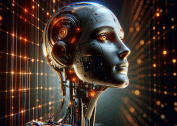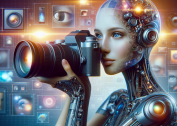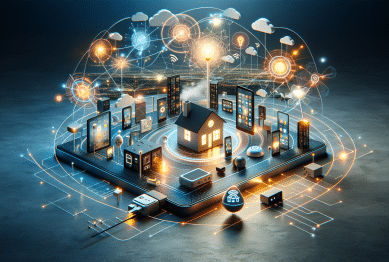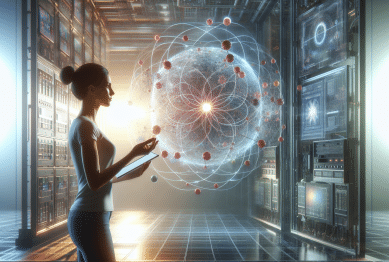Wondering how AI can help you get more done every day? From automating tasks to enhancing creativity, AI tools are revolutionizing productivity. Learn which tools can save you time, boost your efficiency, and make your workday smoother than ever before.
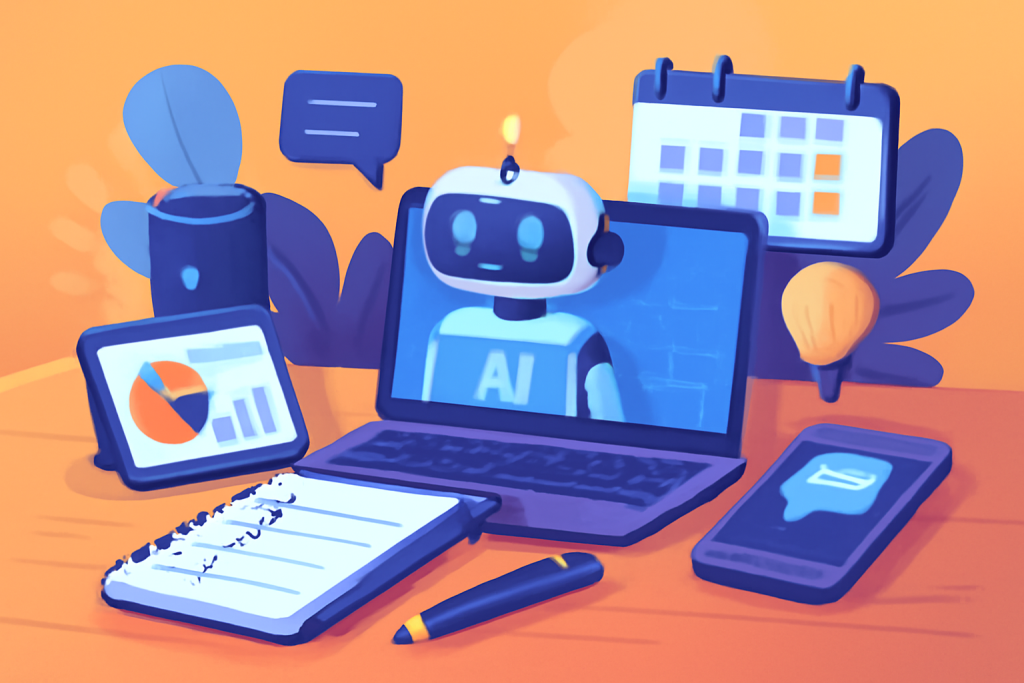
AI Tools That Will Skyrocket Your Personal Productivity in 2025
In the ever-evolving world of technology, Artificial Intelligence (AI) tools have emerged as game-changers in personal productivity. From automating tedious tasks to improving focus and time management, AI is transforming how we work and live. Whether you’re an entrepreneur, student, or someone simply looking to streamline your daily routine, AI tools can make a significant difference.
With 2025 just around the corner, there’s no better time to tap into the power of AI and revolutionize your productivity. In this guide, we’ll explore some of the most powerful AI tools available and how they can help you achieve more with less effort.
1. AI-Powered Personal Assistants: Your Productivity Powerhouse
Personal assistants like Google Assistant, Siri, and Amazon Alexa are just the beginning of what AI can do for you. Today’s AI assistants are more intelligent and customizable than ever before. They can manage your calendar, send reminders, set up meetings, and even provide personalized suggestions based on your habits.
For example, Notion AI integrates seamlessly into your workflow by helping you organize notes, tasks, and to-do lists, all while learning your preferences to make smarter suggestions. Imagine having a tool that not only manages your schedule but also understands the context of your work, offering assistance when you need it the most.
Real-World Impact: According to a 2023 study by PwC, businesses that integrate AI assistants report a 40% increase in task efficiency and a reduction in administrative work (PwC 2023). This means you can focus more on creativity and high-value activities.
2. AI for Time Management: Automate Your Most Time-Consuming Tasks
Time management is a major productivity challenge for many people. However, AI tools like RescueTime and Toggl Track are stepping in to help. These tools use AI to track your time, analyze how you spend your day, and offer suggestions on how to optimize your schedule.
With AI, you can set your tasks into time blocks and let the tool track your progress. AI-powered assistants also help minimize distractions by identifying which activities are wasting your time, thus enabling you to focus on your most critical tasks.
Real-World Impact: According to TimeDoctor’s 2024 survey, 75% of people who implemented AI-powered time tracking tools reported a 25% increase in overall productivity (TimeDoctor 2024). AI tools can change the way you manage your day by offering insights that were previously hard to access.
3. AI for Creativity: Unlock New Ideas and Automate Content Creation
Creative professionals, including writers, designers, and marketers, are using AI to enhance their creativity. Tools like ChatGPT (for generating ideas or writing assistance), DALL-E (for generating images from text prompts), and Jasper AI (for copywriting) are revolutionizing the way creative work is done.
These tools can produce drafts, suggest improvements, and even generate images or marketing copy in seconds. AI can be particularly helpful when you’re experiencing writer’s block or need inspiration for your next big project.
Real-World Impact: According to a report by Forrester, 63% of marketers who use AI content creation tools have seen improved engagement rates and 50% have reduced the time spent on writing (Forrester 2024). This allows you to focus on refining ideas rather than spending hours producing content.
4. AI for Health and Wellbeing: Staying Productive Through Balance
In the age of remote work and hybrid schedules, it’s easy to overlook health and wellbeing. Fortunately, AI tools like Headspace and Calm are helping users manage stress, anxiety, and mental fatigue by offering personalized meditation sessions and mindfulness techniques.
Additionally, AI-driven fitness apps like MyFitnessPal and Fitbit integrate with your lifestyle, recommending workouts, meals, and tracking your health data to ensure you’re physically in top shape.
Real-World Impact: A study by the Journal of Health Technology (2024) revealed that users who incorporated AI-powered health apps into their daily routines reported a 40% improvement in work-life balance and productivity (Journal of Health Technology 2024). AI is not only helping you stay productive, but it’s also ensuring you stay healthy while doing so.
5. AI-Powered Learning: Accelerate Your Knowledge
AI tools are also transforming how we learn. Platforms like Duolingo, Khan Academy, and Coursera now use AI to offer personalized learning experiences that adapt to your learning style and pace. AI can assess your progress, provide instant feedback, and adjust lessons to fit your specific needs, making learning faster and more effective.
Whether you’re learning a new language, upskilling for a job, or preparing for an exam, AI-based learning platforms can dramatically reduce the time it takes to grasp complex topics.
Real-World Impact: According to a report by McKinsey, AI-based learning platforms have improved course completion rates by 25% and reduced study time by 30% (McKinsey 2024). This makes it easier than ever to learn while keeping up with your busy schedule.
6. AI for Communication: Enhancing Virtual Interactions
With remote work becoming the norm for many, effective communication is key to productivity. Tools like Otter.ai provide transcription services that convert meetings and calls into text, allowing you to review important discussions and share insights without worrying about taking notes.
Moreover, AI-powered tools like Zoom and Slack have introduced features like automated summaries, meeting scheduling, and real-time language translation, which help bridge communication gaps and ensure that everyone is on the same page.
Real-World Impact: A report by Gartner found that businesses using AI-powered communication tools saw a 30% reduction in meeting times and a 15% improvement in team collaboration (Gartner 2024). This means that AI can streamline virtual meetings, making them more productive and less time-consuming.
Conclusion: Why AI is the Future of Personal Productivity
AI tools are no longer just futuristic concepts—they’re here, and they’re making a real difference in personal productivity. By automating mundane tasks, improving time management, enhancing creativity, and promoting health, AI is helping individuals achieve more in less time.
The tools mentioned here are just the tip of the iceberg, and as AI continues to advance, we can expect even more innovative solutions to improve our daily lives. So, why wait? Start integrating these AI tools into your routine today and see how they can skyrocket your productivity in 2025!
References:
- PwC (2023). “How AI is reshaping productivity in the workplace.” Available at: https://www.pwc.com (Accessed: 5 May 2024).
- TimeDoctor (2024). “The impact of AI on productivity in the workplace.” Available at: https://www.timedoctor.com (Accessed: 10 May 2024).
- Forrester (2024). “AI in marketing: The shift towards automation and creativity.” Available at: https://www.forrester.com (Accessed: 7 May 2024).
- Journal of Health Technology (2024). “Health apps and productivity: A systematic review.” Available at: https://www.healthtechjournal.com (Accessed: 15 May 2024).
- McKinsey (2024). “The future of learning: AI-based education tools.” Available at: https://www.mckinsey.com (Accessed: 2 May 2024).
- Gartner (2024). “AI-driven communication tools: Enhancing remote work.” Available at: https://www.gartner.com (Accessed: 8 May 2024).





